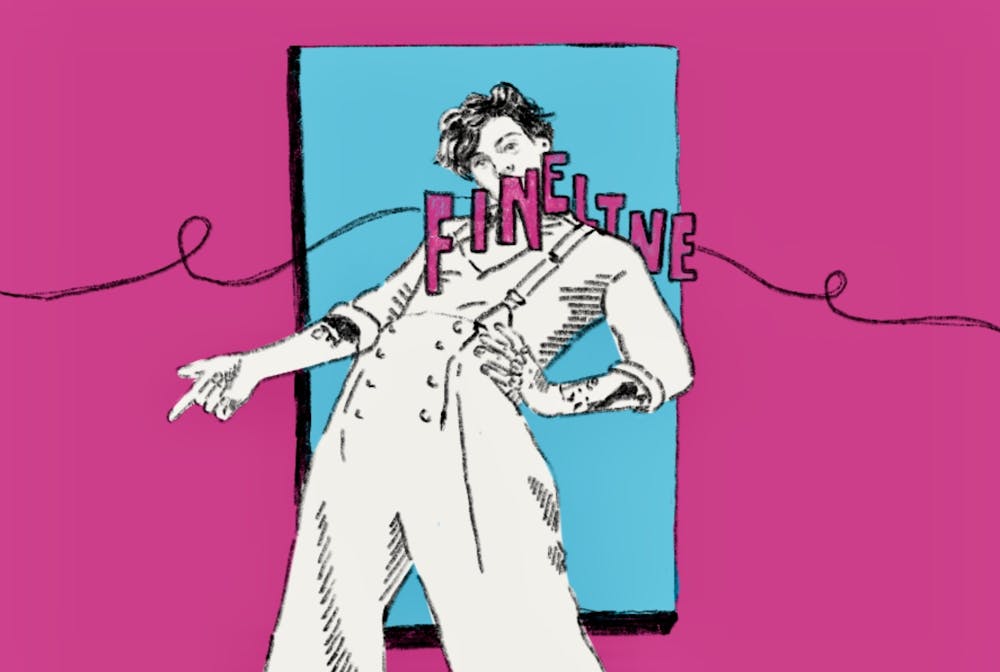Following his boy band introduction, Harry Styles has continuously shaped and reshaped his image in pop music—all while maintaining an attractive repute in his sound. His 2017 self–titled album demonstrated this coolness through fleshed–out images of women in black dresses, toying with what the term “good girl” entails, and ample electric guitar melodies embedded throughout.
Yet, this candid narrative of Styles’s musicianship has transformed into something else. This past December, he released his sophomore album Fine Line, a twelve–track project following two years of the glowing success from his rise as a solo artist. The album departs from the leather jacket, kiss–and–tell image Styles curated. Rather, it acts rather as a reflection, where he seems to tread backwards in each song.
Deep within this contemplation exists an overall convoluted production. Rather than consistently saturating the common sentiments of excitement or sadness throughout the album, Styles hides them in pocketed moments. The energetic zest in the chorus of “Golden,” the opening track, immediately indicates to fans this album is a grand departure from Styles’s classic, suave repertoire evident in older tracks such as “Carolina” and “Kiwi.”
His sonic experimentation already sparked intrigue with his singles released prior to the album, particularly “Watermelon Sugar.” The track’s lush yet repetitive lyricism, coupled with tangy instrumentals, translates Styles’s appeal well as a songwriter. This appeal carries over to “Adore You,” a similarly charismatic song that disregards traditional pop tropes in favor of indie rock instrumentals with hints of Portugal. The Man.
Styles has proven in the past to harbor a knack for ballads, finding intimacy in intricate details. With Fine Line, however, this isn't the case. “Falling” acts as a confession, yet it leaves the listener with a desire for a more refined understanding of what Styles is actually confessing. The swelled climax to the bridge is diffused with the line “And I get the feeling that you’ll never need me again,” which is unmemorable, forgotten as soon as the track ends. Meanwhile, “Cherry” appears somewhat diluted, as Styles obsesses over his past lover moving on well before he had gotten the chance to do the same.
Where Styles demonstrates this branched sound and lyrical minimalism best, however, is in the titular track and album closer “Fine Line.” Stretching past the six–minute mark, the somber promises he brings of moving past his bitter wounds to maintain contact and some sense of connection with a person are heart–rending. The acoustics leading into the trumpet melody and repetition of “We’ll be alright” wrap up the album well, yet leave more confusion than ever about where Styles is heading next in his career.
Fine Line may not be as genre–bending or profound as it seemed to promise with its singles, but it still offers a handful of interesting, innovative moments to an audience still reeling from the wonders of Styles’ first album. And while this project is frustratingly ambiguous, it leaves an appreciation for mystery—which keeps Harry Styles as enigmatic as ever.

